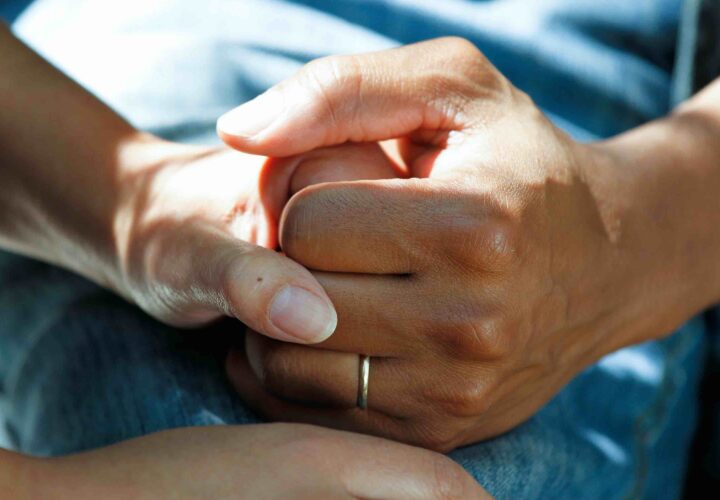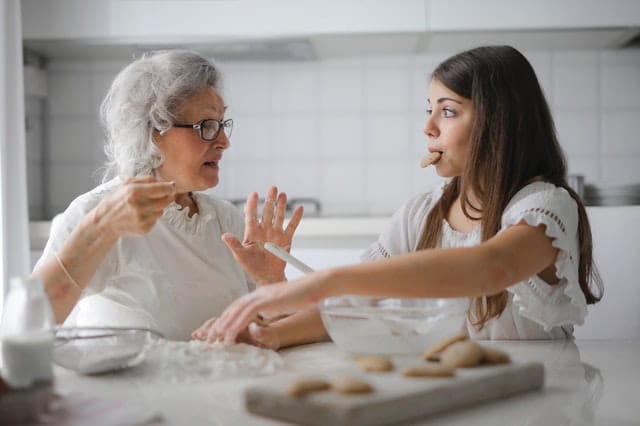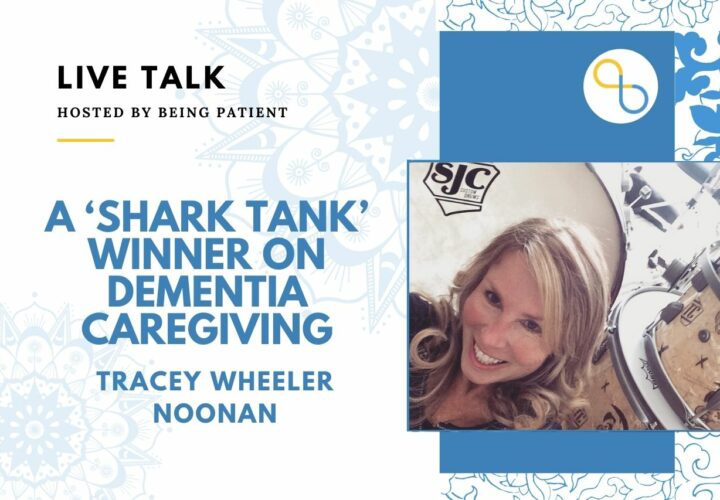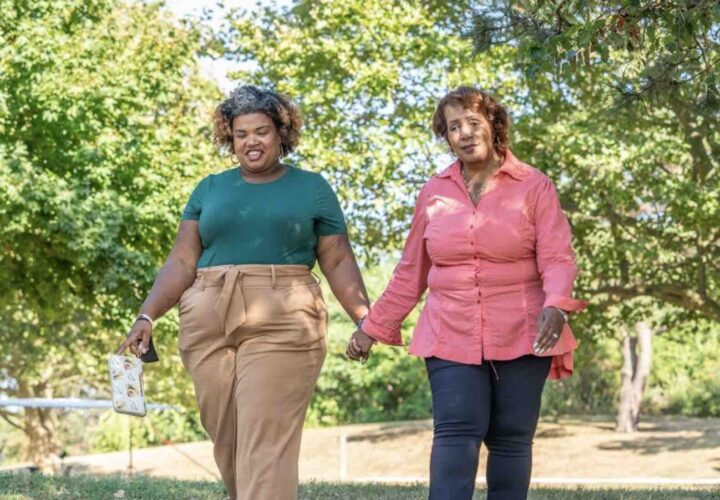Without the right approach, sharing family caregiving responsibilities can be almost as stressful as going it alone. Here are some strategies for getting along with a co-caregiver.
My sister and I shared caregiving responsibilities for my mother, and I know from experience that while those of us with a caregiving team are fortunate to have the help and support, sharing caregiving duties can be a stressful experience. Studies show that there is a higher risk of negative psychological effects for caregivers, especially those who care for older adults with advanced dementia.
While there is a clear benefit to splitting the overwhelming duties that come with the responsibilities of care, issues can erupt between even the most cohesive team. How do you maximize the benefit and reduce the conflict? Through my own journey and in speaking with experts, I know there are a few clear strategies that can help make sharing tasks easier.
Jill Costello, a certified dementia counselor and the program coordinator for the Edel Caregiver Institute in Savannah, Georgia, helps families navigate the many issues that come with caregiving.
“The most stress comes from guilt for the caregiver,” Costello told Being Patient. “They wonder if they’re doing enough, or doing things the right way, like they promised.”
When someone is diagnosed with dementia, Costello feels it’s a group issue. “When someone in the family gets dementia, the whole family gets dementia,” she said. “Then, they have to decide how they are going to deal with it.”
When someone in the family gets dementia, the
whole family gets dementia. Then, they have to decide
how they are going to deal with it.
Here are a few guidelines for those beginning with caregiving — and hoping to share the responsibilities with others.
1. Make a plan — together
From the beginning, Costello said, it helps to set up a meeting for everyone involved with your loved one.
Before the meeting, identify different jobs that need to be done. Then, during the discussion, assign duties and roles to all helpers.
In divvying up these roles, everyone should build on their strengths: Is one person especially good with finances or dealing with insurance issues? Is there a great cook in the group? Is someone located closer, who can be there quickly if sudden help is needed? Find someone who meets that last criteria and appoint them the person who will be in charge in the event of an emergency.
Keep in mind, geography doesn’t limit caregiving ability. While long-distance caregiving team members may not be present for the physical day-to-day, they are well positioned to help with online tasks, from research on medication or available resources to financial paperwork and insurance issues. Establishing a role for those who don’t live close by is an important step to engage them and to allow them to feel useful and involved.
2. Don’t try to do it all alone
Millennial caregiver Kamaria Moore-Hollis shared advice with Being Patient, “Allow yourself to feel whatever comes up, because it’s a really frustrating and sad process, and we’re not superheroes. I think we have an expectation that we’re supposed to be happy all the time, and caring for our loved ones while caring for ourselves, and you can’t do it all — so just recognize when you need help — and when it comes along, take it.”
While caregivers might feel that no one can look after the person with Alzheimer’s or other forms of dementia as well as they can, there is more than one benefit to allowing others into the situation. A new person might view the situation with fresh eyes, with a different perspective and new ideas for solutions.
“Allow yourself to feel whatever comes up, because
it’s a really frustrating and sad
process, and we’re not superheroes.”
The person receiving the care also gets advantages. “Your loved one might also benefit from a break from you,” Costello explained, cautioning that those who aren’t involved in the day-to-day should be careful of not overwhelming the person they’re helping to care for.
“People living with dementia can rise to the occasion and then crash. We have to teach the whole family to rally not only around the person living with dementia or Alzheimer’s, but also the caregiver.”
3. Be your own advocate
Communication is important in a situation where everyone is sharing work. For example, sometimes a primary caregiver might simply need a few days to recharge. But caregivers are no strangers to guilt, and if the request for a little break is seen as a complaint to the other members of the network, it can open the floodgates for guilt and resentment. In my experience, and in Costello’s, this can be avoided with the right kind of open communication.
Costello suggested focusing on your own feelings. “Don’t make things sound accusatory. Use a sense of gratefulness, and say that you need a break,” she advised. “Be willing to compromise. Tell the others you’ll make it up to them at another time.”
Caregivers can fear angering other members of the care team, but being assured and direct in seeking help gets better with practice. A good way to self-monitor requests is to pretend that the roles are reversed. How would you feel if a caregiver was asking the same things of you?
It works to understand that the person you’re asking has feelings and stressors also. Try framing your request with a statement that shows this. It might be, “I know you are really busy with your travel schedule, but if you can block off a few days, I need to spend time with my husband.”
Even with a team, caregiving can be isolating. That’s why communication with the team is key. Shark Tank winner and scriptwriter Tracey Noonan spoke with Being Patient about her own issues caring for her mother and late father after their Alzheimer’s diagnosis.
“First, let me preface by saying I have an amazing family between my husband, my daughter, my sister-in-law Colleen, my brothers: all [of them are] wonderful and so helpful,” Noonan said. “But when you’re actually living day-to-day with people suffering from this disease, you can kind of start to feel like all these emotions — this rollercoaster that you’re on — are strictly your own feelings. I think that’s where the loneliness comes in.”
While Costello suggests that caregivers start looking for local support in their area, the Edel Caregiver Institute is a source of aid and information for caregivers everywhere, free of charge. Look for similar resources — including support groups, family and individual counseling — in your area, or get in touch through their website.




